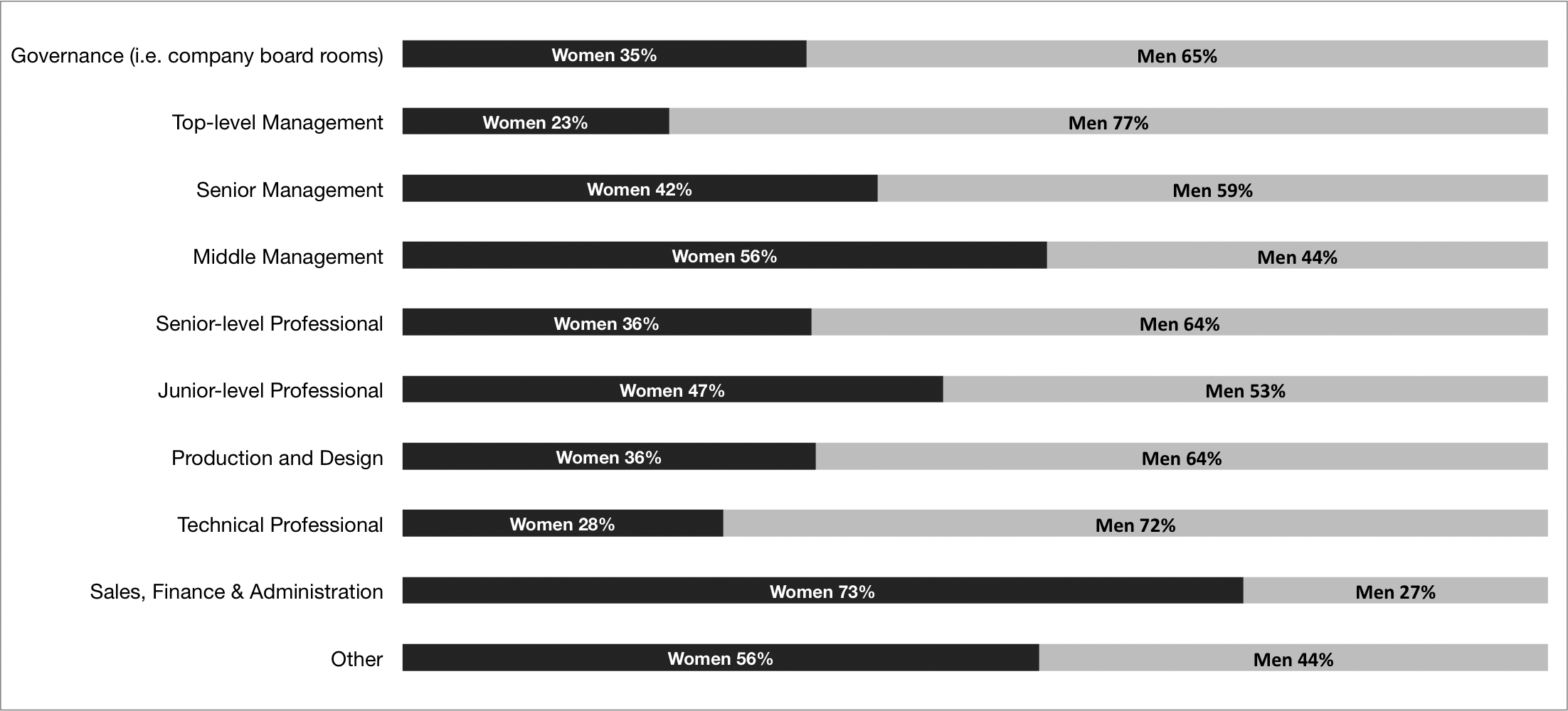I am tired of being told to act like a man.
Last month, I attended a panel at the CUNY Graduate School of Journalism about women in media. The event was billed as “Power, Pay and Parity: Women Leaders Discuss Instituting Equality.” This is a welcome topic indeed. Studies show that women are underrepresented in newsrooms and media leadership, despite making up a majority of journalism and communications college students. This is true of CUNY as well — my class, which will graduate in 2015, is 58 percent female. As a woman nearing graduation from journalism school, this is one of many worries that plague me as I do my work and search for jobs.
The panel consisted of three women who’ve worked for some of the most venerable newsrooms in the country: National Geographic, Bloomberg, The Miami Herald, People, NPR, and the Takeaway, to name only a few. I hoped to be inspired. And at moments, I was. The panelists spent time discussing how to hire diverse talent, and the importance of a diverse staff. Their stance was unequivocal: Diverse newsrooms produce better journalism. It was also heartening to hear these women talking about doing away with unpaid internships. Offering an internship without pay limits the applicant pool to only those who can afford to live without an income in a city like New York. To nurture a generation of journalists who come from all different races, ethnicities, genders and orientations, we must ensure that entry-level experience is available to all. That means paying interns.
Despite these moments, I was disappointed by the overall tone of the event. While there was discussion of institutional sexism and racism and the ways in which employers react differently to women asking for raises, little was said about how to address these systemic problems. Instead, the majority of the conversation focused on the confidence gap that exists between men and women in the workplace. The panelists offered a lot of advice, but it mainly fell into one category. The message to women seeking equal treatment with (and by) their male colleagues was consistent: Be more aggressive. Demand more. You don’t know how to negotiate; that’s why you get paid less. One of the panelists said, “Act like you are a guy.”
This is frustrating on a number of levels. Let’s begin with two. First, professional women face a catch-22 between being passive and accepting less compensation or success in order to be perceived as “likeable,” and being aggressive or demanding, and thus be perceived as a bitch. The Internet offers no shortage of think-pieces on the subject. To be fair to the panelists, the confidence gap certainly exists. I feel it in myself all the time. I recognize the need to grow tough skin and to set less store by what others say about you. But this ought not be the end of the discussion. People who work in an environment in which women face the nice-or-bitchy paradigm should work to change it. It cannot be only women doing that work. It cannot be only women having this discussion. Therein lies my second frustration. At this event, it was almost entirely women who showed up to listen. In a room of probably more than fifty people, fewer than five were men. I saw none of my classmates and none of my professors. These problems are not unique to media. Glass ceilings and the gender pay gap exist in many fields, including academia. I would be surprised if the same types of gender differences did not exist among attendees of other Graduate Center events.
There are ways to address this, at an institutional level, or at least at the level of the classroom. During my first semester, one of our professors required us to attend an evening panel, and to write a short article based on the ideas discussed. I suggest that professors, journalism or otherwise, do something similar for these events, whether they’re about gender, race, sexual orientation, or any other underrepresented group or justice issue. To my fellow classmates who did not attend the panel: I get it. Some of you were actually in class at the time. Outside of class time, we are incredibly busy. That’s why in the journalism school, our professors, especially in the first semester Craft of Reporting class, should replace one of their usual assignments with this. Make us go to the event. Make us write a story about it. There’s an extra advantage to this plan for journalists. When you report on an event, you engage with it more deeply than when you’re just an attendee. You must pay attention the entire time and be on the lookout for the most critical tidbits to synthesize into an article. Reporting is a job in which a primary side effect is that you are forced to learn and absorb a lot of fascinating information.
To be fair to my professors, this event was ticketed, and so only a limited number of people could attend. As one of my professors pointed out to me, if this had been assigned to fifteen students of the journalism school, it might have prevented others from attending, people who wanted and needed to hear this discussion. Still, I have to ask myself why so few men felt that this was an important message that they should be in the room to hear. As a white woman, I realize I am not exempt from these responsibilities. I should certainly attend more of the school’s functions that have a racial focus. I also think the school should require anti-racism training, but that is a subject for another article. As I commit to better educating myself about the challenges of other marginalized groups and how I can fight systemic oppression, I hope that my colleagues, and my school, will do
the same.

